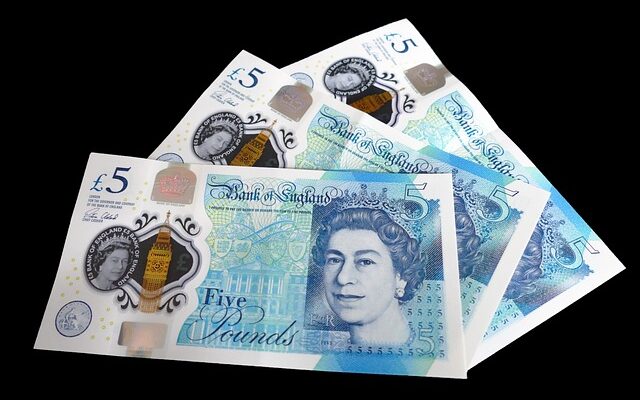In 2024, the countries that have the British pound sterling as their official currency are the four nations that make up the United Kingdom: England, Scotland, Wales, and Northern Ireland.
It’s important to note that there are banknotes issued in England, Scotland, and Northern Ireland, meaning there are English, Scottish, and Northern Irish pound banknotes. However, all of these pounds are the same currency, the British pound sterling, and can be used as a means of payment anywhere in the United Kingdom.
On the other hand, as a curiosity, there are no banknotes issued in Wales. In Wales, banknotes are only issued by the Bank of England, so there are no separate Welsh banknotes like in Scotland and Northern Ireland.
Lastly, it’s worth mentioning that only Northern Ireland uses the pound. The rest of the island of Ireland is the Republic of Ireland, where the official currency is the euro, not the pound.
Currencies with a fixed parity exchange rate with the British pound sterling
Some British Crown dependencies and overseas territories under British influence have their own currencies, also called pounds, with a fixed 1-to-1 exchange rate with the British pound sterling. In other words, 1 pound from these territories is equivalent to 1 British pound.
The different pounds with this fixed exchange rate parity are:
- Falkland Islands and South Georgia and the South Sandwich Islands: Falkland pound.
- Guernsey: Guernsey pound.
- Gibraltar: Gibraltar pound.
- Isle of Man: Manx pound.
- Jersey: Jersey pound.
- Saint Helena: Saint Helena pound.
As mentioned before, all of these pounds have the same monetary value as the British pound sterling, although they can only be used as a means of payment in their respective territories (in the United Kingdom, they may be accepted only in banking institutions).
However, British pounds can be used normally without any issues in any of these British territories.
Where to get the best exchange rate for British pounds?
The British pound sterling is a globally recognized currency used in international trade and serves as a reserve currency worldwide. Therefore, it’s possible to exchange local currency to pounds or pounds to local currency in practically any country in the world.
However, it’s important to note that the exchange rates and/or commissions applied may vary depending on the location since the foreign exchange market is a free market.
Without a doubt, when traveling, the best exchange rate to convert any currency to British pounds is obtained by paying with a card, as it is by far the most cost-effective option available.
On the other hand, if you want to carry some cash, the best option would be to exchange your currency to pounds at your bank, where they will apply a margin of approximately 5% over the official exchange rate.
Therefore, the cheapest way to exchange to pounds is by paying with a card (as you can see in this analysis, for the year 2024, Wise card offers the best exchange rates when paying at establishments and the lowest costs for international ATM withdrawals), and only exchange a small amount to pounds at your bank if you want to have some cash on hand in case of emergencies.
Denominations of the British pound sterling
In case you’re not familiar with the denominations of the British pound sterling, here are the different units of banknotes and coins:
Banknotes: £50, £20, £10, and £5.
Coins: £2, £1, 50p, 20p, 10p, 5p, 2p, and 1p.
Since these denominations are not of very high value, you should have no problem using them for payment, except for the £50 banknote, which might not be accepted for low-value purchases. Therefore, when carrying cash, try to have a variety of banknotes.
Finally, it’s important to know that outside of the countries that use the British pound sterling, coins will not be accepted for exchange into other currencies (only pound banknotes will be accepted). This can be problematic since, as mentioned earlier, the £1 and £2 coins have their value, and you wouldn’t be able to do anything with them.
So, before returning from your British destination to another location, if you don’t plan to return or need to go to another British territory in the future, try to exchange or spend all the coins you have beforehand to avoid losing their value.

